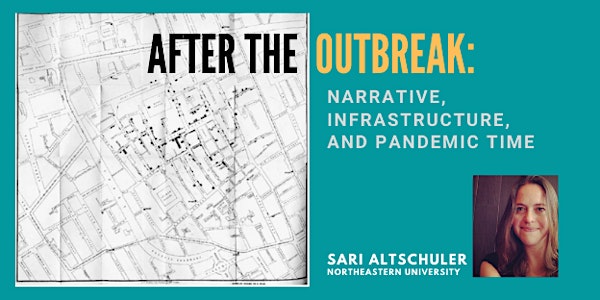
Sari Altschuler: "After the Outbreak"
Sari Altschuler: After the Outbreak: Narrative, Infrastructure, & Pandemic Time
By UCD Environmental Humanities
Date and time
Thu, 24 Sep 2020 08:00 - 09:15 PDT
Location
Online
About this event
Organised by
Interdisciplinary environmental humanities at UCD brings humanistic modes of inquiry and creative praxis to bear on environmental challenges, with an emphasis on the capacity of cultural critique to illuminate ethical and political questions relating to ecological crises. In particular, the environmental humanities aim to resist polarized understandings of ‘nature’ and ‘culture’, and to bridge disciplinary divides between the ‘two cultures’ of the sciences and the humanities, exploring how environment-making is always entangled in social questions.